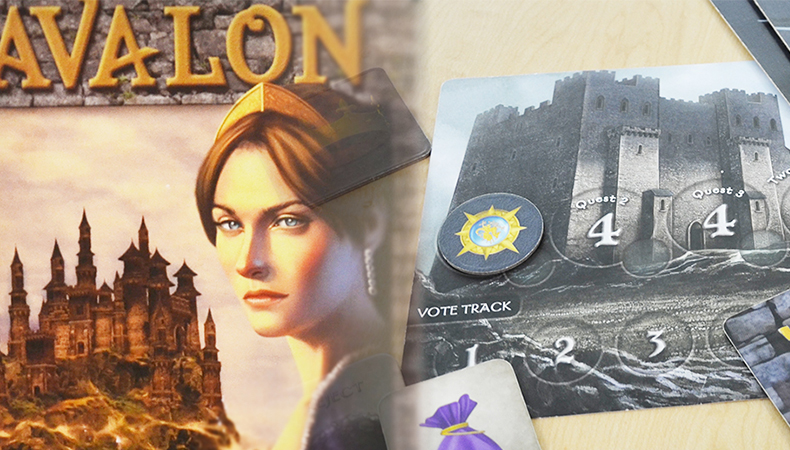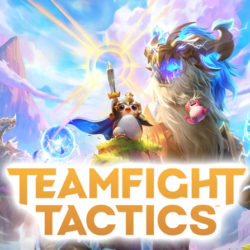
You’ve been carefully observing the actions of the players around you, knowing full-well that they might not be who they claim. No, you’re not a character in John Carpenter’s “The Thing,” or stuck at a speed-dating event. You are playing “The Resistance: Avalon,” a social deduction board game. Players in this game are given hidden roles that are unknown to other players until the end. To win, you need to out-act, out-wit, and out-bluff your friends. Coming from a poker background, I enjoy this game because it requires the situation and person-reading skills found in poker.
Avalon is a game for 5-10 people where each player is randomly given a role by being dealt a card face down. There are two teams: the evil team, “Minions of Mordred,” and the good team, “Loyal Servants of Arthur.” The number of players on each team varies with the number of players in the game. With 6 players, there are 4 good roles and 2 evil roles. Since this is a game of social deduction, the members of the good team don’t know who else is on their team. The evil team members start the game knowing the identities of the other evil team members. An exception to this rule is the character Merlin. Merlin is a special role on the good team who knows the identities of all the evil team members.
The game play consists of players proposing groups of people to go on missions together. The mission composition is voted on; if there is a majority vote the mission begins. Players on the mission are given 2 cards and secretly choose one of them, “succeed” or “fail.” The good team always wants the mission to succeed. Evil team members on a mission can choose either succeed or fail. Most missions only require one fail card to make the mission a failure. The number of players and the number of “succeed” cards that are needed on each mission changes as the game goes on. The evil team’s goal is to get 3 missions to fail out of the 5 total missions.
The good team members need to figure out who is on their team so they can include them on missions. You might be thinking to yourself “If Merlin knows who all the evil team members are, why doesn’t he tell the other good players?” There is, of course, a catch. If the good team succeeds on 3 missions, the evil team then chooses the person they think was playing Merlin. If they guess correctly, the evil team wins. Your probability of winning on the good team is:
P(win) = P(win 3 of 5 missions)*P(Bad team doesn’t figure out Merlin’s Identity)
The rules are not complicated; the interactions between players are. Imagine you played this game with the same 5 friends 60 times. You’d be playing as a “Loyal Servant of Arthur” 30 times, Merlin 10 times, and a “Minion of Mordred” 20 times. Depending on how observant the people you are playing with are, you’re going to need to balance your play so there are not obvious differences in your behaviors as each role.
This concept of balance comes up frequently in poker. In “The Mathematics of Poker” by Bill Chen and Jerrod Ankenman, balancing your range means mixing bluffs with poor hands and bets with strong hands, such that your opponent can’t beat your strategy by either calling or folding more often. If you bluff too frequently, your opponent could adjust their strategy so that they call down more often with weaker hands and profit. With a balanced betting range, your opponent cannot adjust their strategy to do better against you.
How does this balance apply to Avalon? As Merlin, you want to communicate information to increase your team’s probability of winning 3 missions. But, you can’t act significantly differently, because then you’d increase the probability the evil team figures out you’re Merlin. You could be quiet as both Merlin and as a good team member. This would be easy to do and would be balanced in that you’re not giving much information away. Unfortunately, the goal in this game isn’t to be balanced, it’s to win. If you’re going to be talking as Merlin, you have to be observant and conversational as a good team member as well. When you’re playing on the good team, if you can figure out who is evil based on your observations, you should communicate this information to the group. As Merlin, when you tell the group why you think a player is evil, you can base your comments on the same type of logic you’d use as a normal member of the good team. If you only looked for these opportunities as Merlin, your game would be unbalanced. The evil team would quickly pick up that you are only “figuring things out” because you know their identities.
In both poker and Avalon, the goal is to maximize your expectation. Balancing your play against people who are observant is required to win. What about playing against people who are not observant? Against unobservant players, you can throw the idea of balance out the window and play an exploitive strategy. An exploitive strategy is one that maximizes your expectation against an opponent’s strategy. It means deviating substantially from playing a balanced strategy. An example in poker would be: if your opponent folds too many hands on the river, you can exploit this by bluffing frequently against them. In Avalon, an example would be: if the evil team members are not observing how you normally play as a good team member, you could share more information as Merlin without looking like you stand out. In both examples, your new strategy is no longer balanced and could be exploited by a shift in your opponent’s strategy. The poker opponent could call more often and beat you. The unobservant Avalon players could pay more attention–this would be especially powerful if the shift in their attention was subtle enough to go unnoticed. Since this is a repeatable game, shifts in your strategy away from balanced play will be met by changes in your opponent’s strategy.
What makes Avalon interesting is how the simple rules provide an environment for complicated interactions between people. I’ve played this game with the same group of friends for a long time now. I like seeing the emergent strategies people develop after playing the game with the same group. If you have other social deduction board games you enjoy, please post them in the comments below.




Subscribe Now
Get each new post sent straight to your inbox